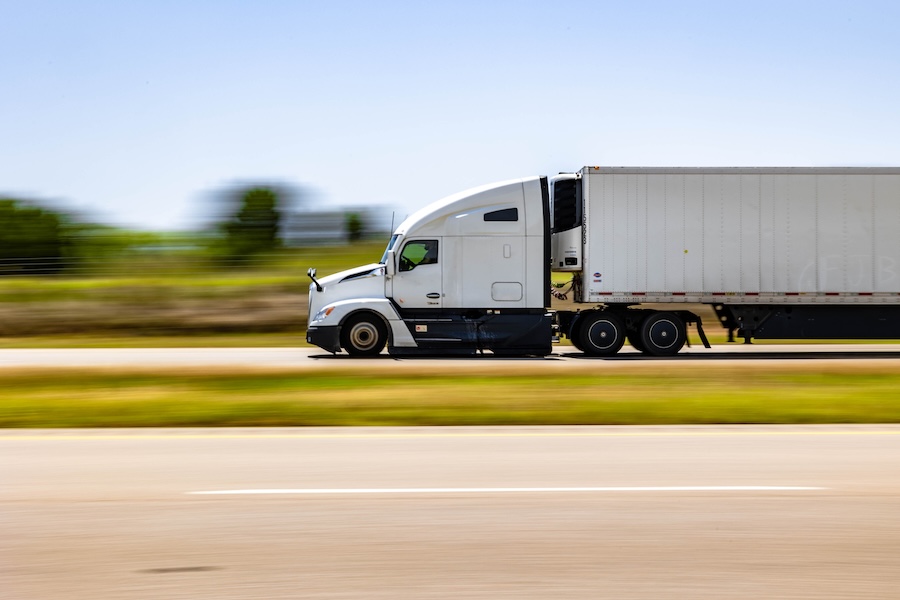
A Crash in an Instant, Evidence in the Details
It’s late at night on I-35. You’re driving home from a long shift, headlights streaming past, when an 18-wheeler looms in your rearview mirror. The sound comes first—the roar of brakes too late, the crushing impact that sends your car spinning across the lane. When it stops, you’re stunned, bruised, maybe even trapped. Emergency lights paint the scene red and blue.
What you don’t see is the quiet witness inside the truck itself: a device tucked away in its engine system known as the black box. Unlike eyewitnesses, it doesn’t forget. Unlike the driver, it can’t bend the truth. That black box is often the single most powerful piece of evidence in a Texas truck accident case, if it’s preserved in time.
What Exactly Is a Truck “Black Box”?
Nearly every modern commercial truck in the U.S. has an Electronic Data Recorder (EDR), sometimes called an Engine Control Module (ECM). Think of it as the truck’s memory card.
It doesn’t record video or audio, but it does store key performance and event data that can prove what really happened in the moments before, during, and after a crash.
The black box typically tracks:
- Speed at the time of impact.
- Sudden deceleration or “hard stop” events.
- Brake application—when and how hard.
- Throttle position (whether the driver was accelerating).
- Seatbelt use.
- Hours of service logs.
- Engine diagnostics and fault codes.
Some models also sync with GPS and telematics, giving a minute-by-minute map of the truck’s journey.
In plain English: the black box can show whether a driver was speeding, drowsy, distracted, or reckless in the seconds before the collision.
Why Black Box Data Matters in Texas
Texas leads the nation in fatal truck crashes, and Dallas—with its convergence of I-20, I-30, I-35, and I-45—sees a constant stream of freight traffic. When an 80,000-pound truck collides with a car, the consequences are devastating.
Truck accident claims are high-stakes. Trucking companies and their insurers know verdicts can reach into the millions. That’s why they often fight to minimize liability.
Black box data can:
- Confirm if the truck was over the speed limit.
- Show whether brakes were applied at all.
- Reveal if the driver had been behind the wheel too long, violating federal regulations.
- Corroborate or contradict police and witness reports.
It transforms a case from a “he said, she said” into hard science—and that’s why it’s crucial to preserve.
The Problem: Data Doesn’t Last Forever
Truck black box data is not permanent. Depending on the model, it can be overwritten within days or weeks. Sometimes it’s lost the moment the truck goes back into service or is repaired.
And trucking companies aren’t required to keep it indefinitely. Unless someone acts quickly, the very evidence that could prove negligence may vanish.
Preserving Black Box Evidence
Step 1: Seek Legal Help Immediately
The faster you contact a Texas truck accident attorney, the faster they can act to preserve critical data. Waiting even a few weeks can mean the difference between a strong case and no case at all.
Step 2: Send a Spoliation Letter
An attorney will often send a spoliation letter—a formal notice requiring the trucking company to preserve evidence such as:
- Black box data.
- Driver logs.
- GPS and telematics.
- Dash-cam video.
- Maintenance records.
Once this letter is received, intentionally destroying or altering evidence can lead to penalties in court.
Step 3: Use Experts to Download Data
Extracting EDR data requires specialized tools and training. Accident reconstruction experts can translate the raw data into clear reports showing what the truck was doing before impact.
Step 4: Combine with Other Evidence
Black box data is powerful, but even stronger when paired with:
- Photos from the crash scene.
- Skid mark analysis.
- Eyewitness statements.
- An official report filed by police/Texas DPS.
- Your medical records.
Together, this evidence builds a case that insurers can’t ignore.
Leveling the Playing Field
Here’s something most people don’t realize: trucking companies often send “rapid response teams” to crash scenes. While victims are still in the ER, investigators may already be collecting evidence to protect the company.
That’s not paranoia—it’s industry practice. And it’s exactly why preserving black box data isn’t a minor step. It’s how ordinary Texans level the playing field against billion-dollar freight companies.
Lessons from Other Cases
Across Texas, black box data has been pivotal in courtroom victories. In one case, EDR data showed a trucker had been speeding and failed to brake until one second before impact. That single fact shifted liability onto the trucking company and resulted in a fair settlement for the injured driver.
Without that data, the story could have been dismissed as speculation.
What to Do If You’re in a Truck Accident
If you or someone you love is involved in a truck crash in Dallas or anywhere in Texas, here’s what to do:
- Get medical help immediately. Your health comes first.
- Call law enforcement officials (Texas DPS/sheriff/police). Make sure a report is filed.
- Document the scene. Photos, video, and witness info matter.
- Contact an attorney quickly. Black box data doesn’t last. Preserving it is urgent.
Final Thoughts
Truck accidents are life-altering. The injuries are severe, recovery is long, and legal battles are uphill. But the black box doesn’t lie. It records the truth in a way that witnesses and insurers can’t spin.
The key is making sure that truth doesn’t disappear. Acting fast, with an attorney who knows how to preserve evidence, can be the difference between being overwhelmed by medical bills and getting the justice you deserve.
At Wolf Law, we fight hard to preserve black box data, challenge trucking companies, and protect our clients’ rights.
If you’ve been injured in a truck accident in Dallas, call Wolf Law’s Texas truck accident attorneys today for a free consultation.
